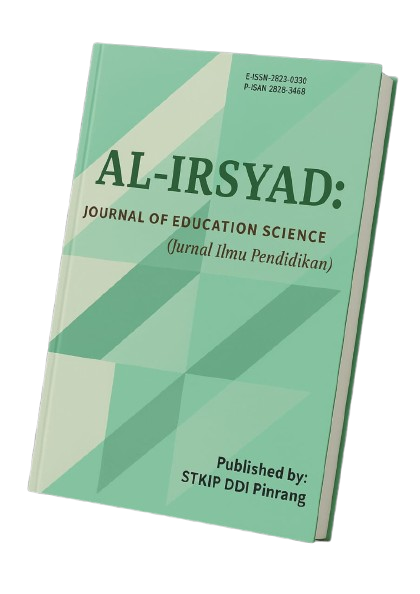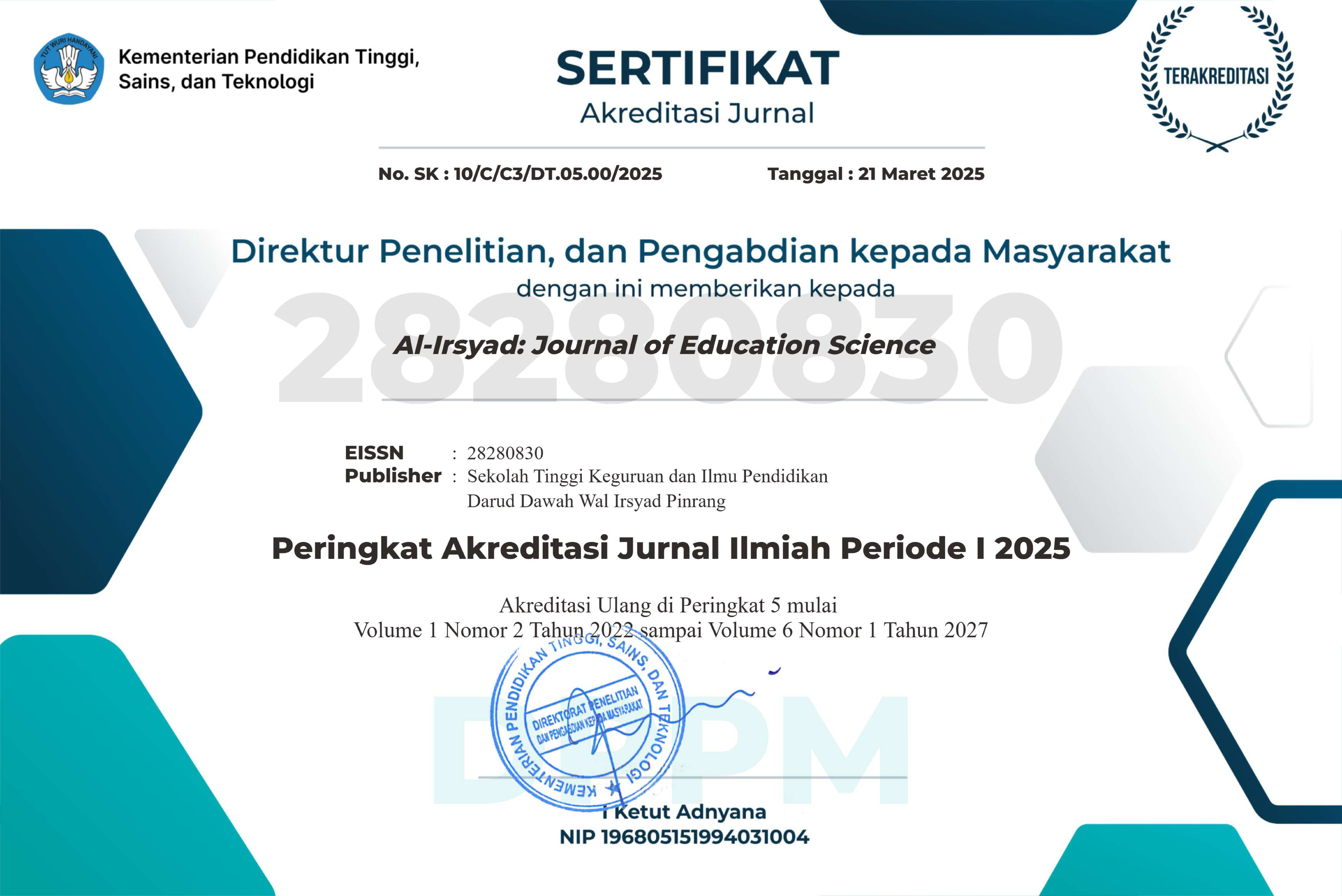PSYCHOLOGICAL FACTORS ON STUDENT SPEAKING ENGLISH PROBLEMS AT SMAN 6 TAMBUN SELATAN
DOI:
https://doi.org/10.58917/aijes.v4i2.400Kata Kunci:
English Learning Difficulties, Psychological Barriers, Student’s AnxietyAbstrak
The research was conducted to thoroughly explore the barriers that hinder students' ability to learn effectively, both from psychological and academic perspectives. Previous studies on English learning difficulties have primarily focused on linguistic and academic factors, such as grammar mastery, vocabulary development, and reading or writing skills. However, limited attention has been given to the psychological barriers that significantly influence students' ability to learn and perform in English, particularly in the context of Indonesian high school students. While some research has mentioned issues like anxiety or fear of making mistakes, these studies often lack a detailed exploration of how psychological factors interact with academic challenges to affect students' confidence and participation in class. This study aims to address this gap by thoroughly investigating both psychological and academic barriers that hinder students' English learning process. By using a questionnaire distributed to students at SMAN 6 Tambun Selatan, the research highlights the dominant role of fear and anxiety as emotional obstacles that reduce students' self-confidence and willingness to engage in learning activities. The findings emphasize the importance of creating supportive and anxiety-reducing classroom environments, which have not been adequately discussed in prior research.
Referensi
Ariyanti, A. (2016a). Psychological Factors Affecting EFL Students’ Speaking Performance. ASIAN TEFL Journal of Language Teaching and Applied Linguistics, 1(1), 77–88. https://doi.org/10.21462/asiantefl.v1i1.14
Ariyanti, A. (2016b). Psychological Factors Affecting EFL Students’ Speaking Performance. ASIAN TEFL Journal of Language Teaching and Applied Linguistics, 1(1). https://doi.org/10.21462/asiantefl.v1i1.14
Cabe, P., & Selatan, T. (2012). Psychological Factors That Hinder Students from Speaking in English Class ( A Case Study in a Senior High School in South. Journal of Education and Practice, 3(12), 100–110.
Dewi, R., Rahmadani, P., Astutik, Y., & Rahayu, E. M. (2024). Rara Dewi Putri Rahmadani. 12(1), 28–38.
Diaab, S. (2016). Role of Faulty Instructional Methods in Libyan EFL Learners⿿ Speaking Difficulties. Procedia - Social and Behavioral Sciences, 232(April), 338–345. https://doi.org/10.1016/j.sbspro.2016.10.032
Gibson, M., & Esra, J. A. (2020). Mahu. Shakespeare’s Demonology, 2(4), 374–376. https://doi.org/10.5040/9781472500403.article-0000110
Khapsoh, S. (2020). STUDENTS’ PSYCHOLOGICAL SPEAKING PROBLEMS AT THE ELEVENTH GRADE OF LINGUISTIC MAJOR OF SENIOR HIGH SCHOOL 2 PURWOKERTO, BANYUMAS REGENCY THESIS Submitted to Faculty of Tarbiya and Teacher Training Of IAIN Purwokerto as a Partial Fulfilment of the Requirem. 1–157. chrome-extension://kdpelmjpfafjppnhbloffcjpeomlnpah/https://repository.uinsaizu.ac.id/7400/1/SITI KHAPSOH _STUDENTS’ PSYCHOLOGICAL SPEAKING PROBLEMS.pdf
Leong, L.-M., & Ahmadi, S. M. (2017). An Analysis of Factors Influencing Learners’ English Speaking Skill. International Journal of Research in English Education, 2(1), 34–41. https://doi.org/10.18869/acadpub.ijree.2.1.34
Motevalli, S., Perveen, A., & Tresa Anak Michael, M. (2020). Motivating Students to Learn: An Overview of Literature in Educational Psychology. International Journal of Academic Research in Progressive Education and Development, 9(3). https://doi.org/10.6007/ijarped/v9-i3/7779
Quenta, L. (2024). Attitudes and Motivation as Predictors of Perception of English Language Proficiency : Structural Equation Modeling ( SEM ) Attitudes and Motivation as Predictors of Perception of English Language Proficiency : Structural Equation Modeling ( SEM ). November. https://doi.org/10.36941/ajis-2024-0181
Scrivener, J. (n.d.). Learning Teaching- J. Scrivener.pdf.
Semuel, M., Kansil, C., Sujuti, A. F., Semuel, M., Kansil, C., & Sujuti, A. F. (2024). Understanding The Concept Of Servant Leadership In The Digital Age Through Keywords Mapping. Journal of Strategic and Global Studies, 7(1). https://doi.org/10.7454/jsgs.v7i1.1139
Suwartono, T., & Stapa, S. H. (2022). College students’ motivation and attitudes towards learning English as a global language: Perspectives from Indonesia and Malaysia. Kasetsart Journal of Social Sciences, 43(2), 345–352. https://doi.org/10.34044/j.kjss.2022.43.2.11
Thornbury, S. (2005). How to teach speaking (p. 163).
Tridinanti, G. (2018). The Correlation between Speaking Anxiety, Self-Confidence, and Speaking Achievement of Undergraduate EFL Students of Private University in Palembang. International Journal of Education and Literacy Studies, 6(4), 35. https://doi.org/10.7575/aiac.ijels.v.6n.4p.35
Unduhan
Diterbitkan
Cara Mengutip
Terbitan
Bagian
Lisensi
Hak Cipta (c) 2025 Siti Fauziyah, Roslaini Roslaini

Artikel ini berlisensi Creative Commons Attribution 4.0 International License.























